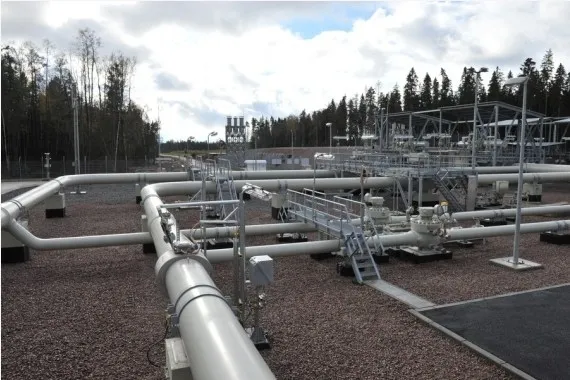Hungarian FM Confirms Gas Supply Readiness to Slovakia

Synopsis
Key Takeaways
- Hungary is ready to supply gas to Slovakia.
- Peter Szijjarto emphasizes Hungary's sovereign energy rights.
- Recent Ukraine transit suspension deemed unacceptable.
- Increased interconnector capacity by 900 million cubic meters.
- Gas prices linked to political decisions and sanctions.
Budapest, Jan 23 (NationPress) Hungary is ready to utilize its full transit capabilities to deliver gas to Slovakia through the southern TurkStream pipeline, as stated by the Hungarian Minister of Foreign Affairs and Trade, Peter Szijjarto, during a press conference in Budapest.
Szijjarto emphasized that it is Hungary's sovereign right to choose its energy sources and routes, firmly rejecting any outside pressure.
He condemned the recent suspension of gas transit via Ukraine, labeling it as unacceptable and a threat to regional energy security.
Ukraine halted the transit of Russian natural gas to Europe on January 1, after the expiration of a five-year transportation agreement.
To bolster its neighbor's energy security, Hungary has increased the annual capacity of its interconnector with Slovakia by 900 million cubic meters, he noted, as reported by Xinhua news agency.
In the previous year, Hungary imported 7.6 billion cubic meters of gas through the TurkStream pipeline, leaving a surplus of 900 million cubic meters available for additional transit.
Earlier this month, in a Facebook update, Szijjarto attributed rising natural gas prices to artificially enforced supply reductions stemming from political decisions and sanctions.
He claimed that the European Union (EU) has experienced a significant decrease in competitiveness, pointing out that inflated natural gas prices compared to those of global competitors are to blame.
Recent data indicates that in 2023, approximately 15 billion cubic meters of Russian gas were transported via Ukraine to Europe, which represented around 5 percent of Europe's total energy needs. With the suspension of Ukraine transit, the TurkStream pipeline under the Black Sea has become the sole remaining route for delivering Russian gas to Europe.
The cessation of the Ukraine transit has also severely impacted Moldova, which relied on imports of around two billion cubic meters of gas annually from Russia via Ukraine.
In contrast, public sentiment in the more prosperous Austria is notably optimistic, as the Austrian government has consistently assured its citizens that the nation has sufficiently built up gas reserves and made comprehensive preparations to transition to alternative suppliers.










